Posted on 7/31/2023
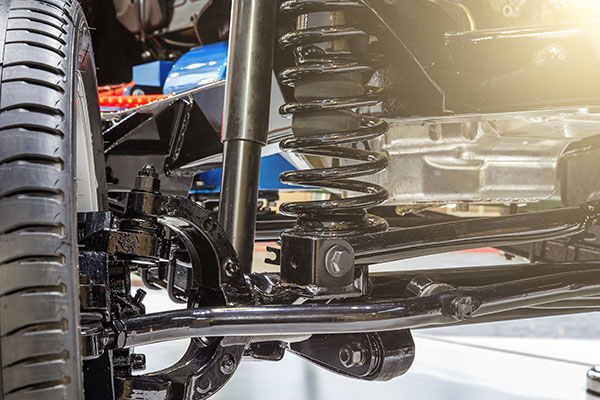
When it comes to the smooth and stable ride we enjoy in our vehicles, we have the suspension system to thank. Among its essential components is the often overlooked control arm, responsible for connecting the vehicle's chassis to the wheel hub. Let's shed some more light on this component and what it does, where it's located, and everything else there is to know. Understanding the Control Arm The control arm, also known as an A-arm or wishbone, is a vital part of the suspension system in both front and rear-wheel-drive vehicles. It is a hinged component that links the suspension to the vehicle's frame or subframe on one end and the wheel hub on the other. Suspension Geometry and Stability The control arm is a key player in maintaining proper suspension geometry, which is crucial for stable and predictable handling. It works in tandem with other suspension components to keep the wheels aligned and perpendicular to the road surface, e ... read more
Posted on 6/30/2023
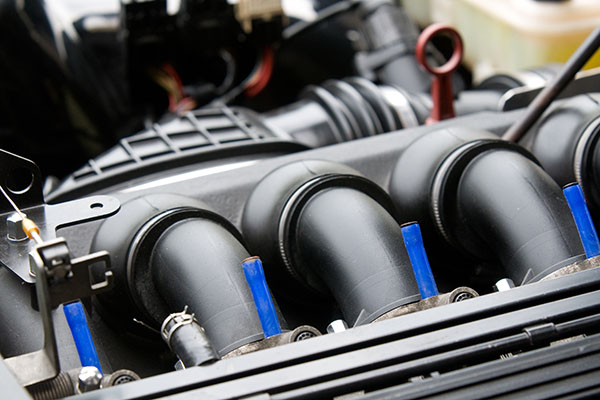
Oil is often referred to as the lifeblood of an engine and for good reason. Do you want to know exactly why? Keep on reading so you can find out and make sure to check your engine level after you finish the article! 1. Lubrication One of the primary functions of engine oil is to lubricate the various moving parts within the engine. As the engine runs, numerous metal components, such as pistons, crankshafts, and camshafts, move rapidly and create friction. Without proper lubrication, these metal surfaces would grind against each other, leading to excessive wear and damage. Engine oil forms a thin protective layer between these components, reducing friction and heat generation, and ensuring smooth operation. 2. Heat Dissipation Engines generate a significant amount of heat during operation. The oil circulating within the engine helps in dissipating this heat. It absorbs heat from the engine's components and carries it away, preventing overheatin ... read more
Posted on 5/31/2023
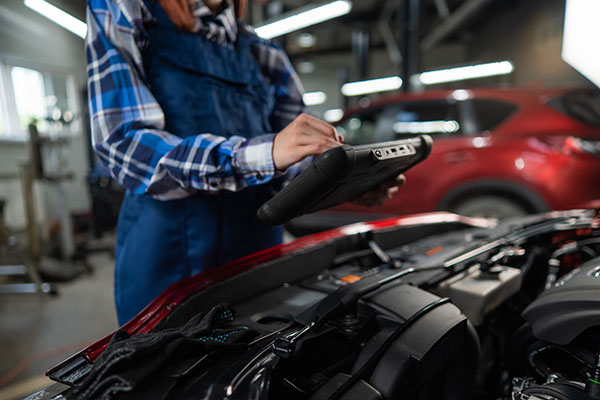
When it comes to reliable and efficient vehicles, Honda has established a solid reputation in the automotive industry. Year after year, Honda cars have consistently impressed drivers with their exceptional reliability, fuel efficiency, and longevity. In this blog, we delve into the reasons behind Honda's unwavering reliability and efficiency, exploring the key factors that set them apart from the competition.The Main Reason Behind Honda’s Reliability The main reason for Honda's reliability is its commitment to engineering excellence. Honda invests heavily in research and development to design and manufacture vehicles with precision and attention to detail. From the engine to the transmission and every component in between, Honda vehicles are built to last. The company's innovative engineering techniques and stringent quality control ensure that each vehicle meets the highest standards of reliability. What Else Does Honda Do Diff ... read more
Posted on 4/29/2023
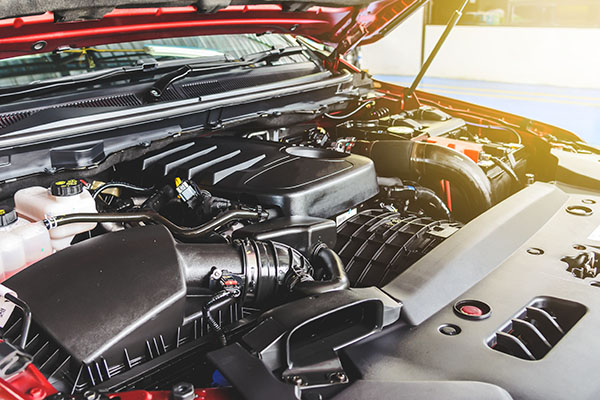
All of the parts in your vehicle, or at least a vast number, need to be lubricated to work properly. But except for the oils that do that, what other fluids are there? Well, we will answer exactly that in this blog and make sure you are informed of what they do as well. Continue reading to find out more. Transmission Oil Your vehicle's transmission is probably the most complex mechanism. Its job is to switch between gear ratios depending on the driver's desired speed. This means that there are a lot of moving parts that have to be lubricated and cooled. Here comes the transmission oil, which is most commonly red and transparent, so if you see a red stain on your driveway, make sure to visit a mechanic. Engine Oil Probably the most well-known car-related thing is engine oil. As its name implies, it is inside the engine, and it keeps all of the parts lubricated while keeping them from overheating - assisting it in that is the coolant. The eng ... read more
Posted on 3/27/2023
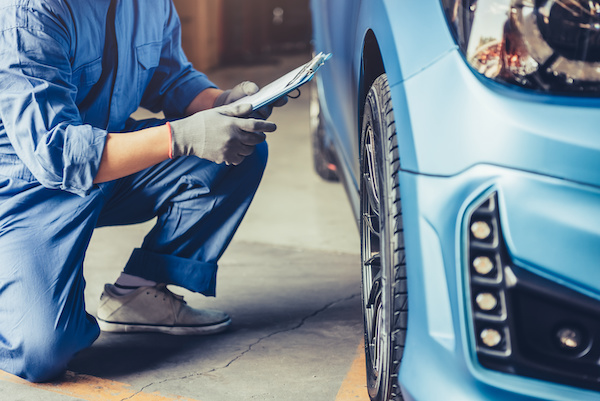
Buying a car is a significant investment and can be a difficult decision to make with all the options out there on the market. At the end of the day, you want to make sure that you're getting your money's worth. That's where a pre-purchase inspection (PPI) comes in. A PPI is an inspection performed by a qualified mechanic to assess the condition of a (usually) pre-owned vehicle before you buy it. Benefits of Pre-Purchase Inspections Identify any issues before purchase A pre-purchase inspection can identify any issues that the seller may not be aware of or choose not to disclose. It will give you an idea of the car's overall condition and aid you in making an informed decision about whether or not to buy it. Saves money in the long run Identifying issues before purchase can save you money in the long run. You can negotiate a lower price or request that the seller fix any issues before buying the vehicle. If the seller is not willing to make the necessary repa ... read more
Posted on 2/27/2023
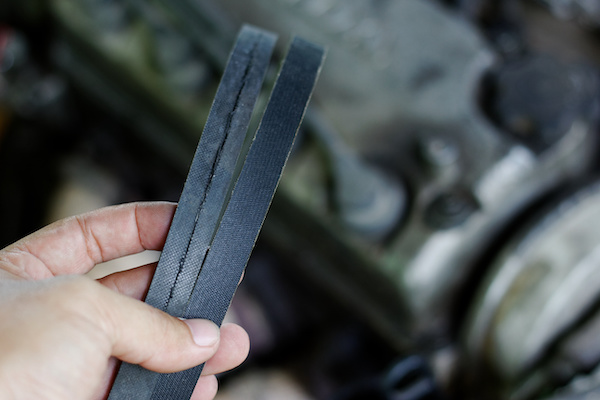
When you look under the hood of your car, you may be overwhelmed by the number of parts you see. There are many parts, including your vehicle’s belts. One of them is the serpentine belt, also known as the drive belt. This rubbery, snake-like belt is in charge of transferring mechanical power from your engine to many parts throughout the vehicle. It powers the power steering pump, alternator, A/C compressor, water pump, and more. To prevent the failure of the serpentine belt, we recommend replacing it before it breaks or as recommended by your automaker. Below are some key signs of a failing serpentine belt: Heavy Steering - For vehicles with a hydraulic steering system, stiff and slow steering are common signs of a worn drive belt. When the belt gets loose, it may be more difficult to have control of the steering wheel. The power-assisted system may disengage altogether. Unusual Noises Coming From Under the Hood - You may be tempted to drown out any annoying sounds comi ... read more
Posted on 1/27/2023
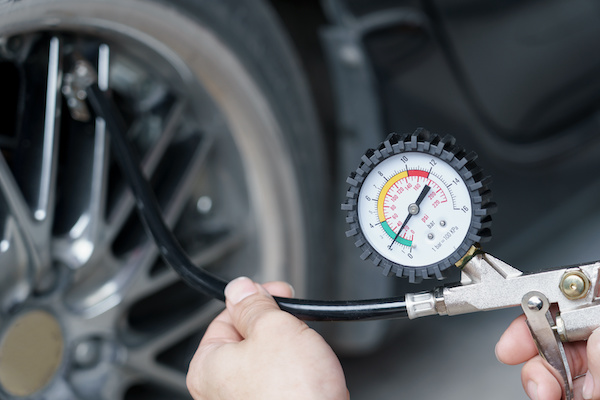
Checking tire pressure is an important step in maintaining the safety and longevity of your vehicle. Under-inflated tires can lead to bad fuel efficiency, decreased handling, and increased risk of a blowout. Over-inflated tires can lead to uneven wear and decreased traction. Here is a step-by-step guide on how to properly check your tire pressure: Find the recommended tire pressure for your vehicle. This information can be found in the owner's manual, on a sticker inside the driver's side door, or on the inside of the fuel filler door. Buy a tire pressure gauge. These can be found at any auto parts store or gas station. Remove the valve cap from one tire and press the gauge onto the valve stem. The gauge will give a reading of the current pressure in that tire. Compare the reading to the recommended pressure for your vehicle. If the pressure is too low, adjust the air until it reaches the recommended level. If the pressure is too high, release some air fr ... read more
Posted on 12/30/2022

Fuel prices are higher than ever before, so you have to think of ways to conserve fuel and increase how efficiently you use it. The more efficient your fuel use, the more money you save There are many ways to get the most out of each gallon of fuel. The following tips will increase your car's fuel efficiency: Inflate Your Tires The tires significantly affect fuel usage and are hence one of the easiest ways to increase fuel economy. If your tires are improperly inflated, your vehicle will consume more fuel than necessary. Therefore, to increase fuel efficiency, ensure your tires have the correct air pressure. Check for punctures so they can maintain their inflation. Ensuring you rotate the tires and balance them will also help with fuel economy. Travel Light Many car owners have a lot more stuff in their trunk than they need. Unless it is winter, you require very little in the trunk. A lighter vehicle means less fuel usage than a heavier one ... read more
Posted on 11/30/2022
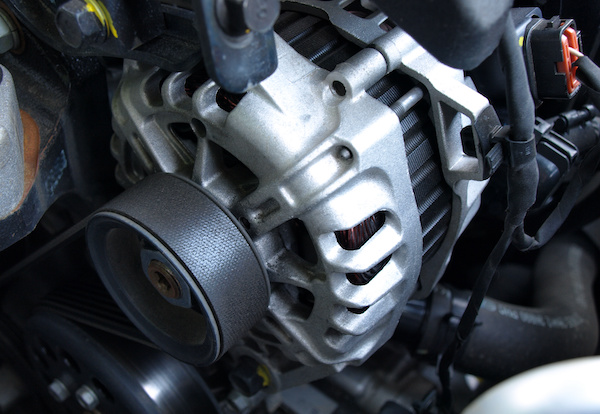
The alternator is a part of the automobile electrical system that cannot be overlooked. It makes up the charging system by recharging the battery and makes useful electricity for powering the rest of your vehicle. When an alternator stops working or malfunctions, electricity will stop flowing to various parts throughout the car and your battery will not charge properly. Today, we will discuss the failing signs of an alternator. Sign #1: Warning Light Some vehicles have a dashboard warning indicator separate from the battery light. It is often shown as “GEN” or “ALT”. If any electrical warning light comes on, you should have your alternator checked out. Sign #2: Unusual Sounds One of the most common causes behind a faulty alternator is a broken belt. The belt on the alternator can become loose or damaged and cause engine knocking sounds. If you catch weird noises coming from under the hood, don’t rule out the alternator. Sign #3: Malfunctioning Electro ... read more
Posted on 10/31/2022

A road trip is a wonderful way to spend quality time with your pet as well as save money on boarding expenses. Here are some tips for a happy safe journey with your pet. Make Sure Your Dog Has ID Your pet should wear a collar and tags at all times and have a microchip. Before you leave, make sure that linking information that you have on your computer is up to date. It is also a good idea to tattoo the inside of your pet's ear with an ID number. Clip A GPS Tracker On Your Dog's Collar It is one thing for your dog to get lost in your neighborhood, but quite another if he decides to wander off in a strange town. Aside from always keeping your pet on a leash (leashes can be broken!) make sure that your pet is wearing a GPS tracker on his collar. That way you can track his whereabouts with your cell phone. Carry an Updated Picture of Your Dog Be sure to carry a recent picture of your pup so that you can prove that he is yours, or use it to help find him if he goes missing ... read more